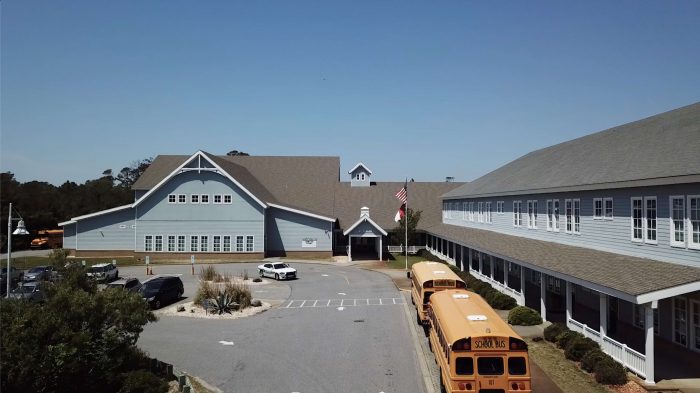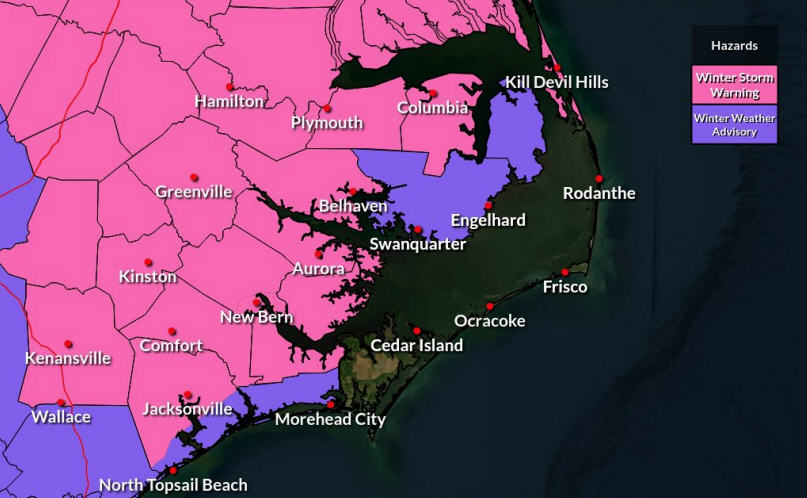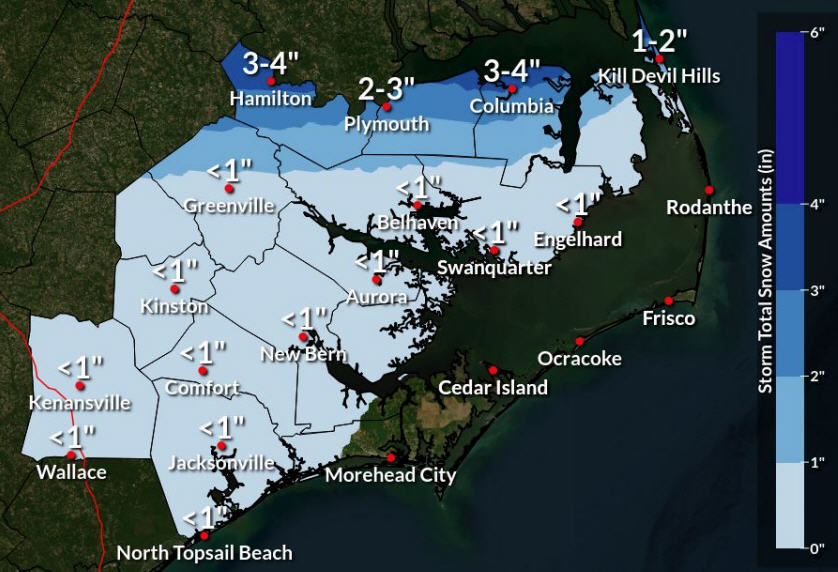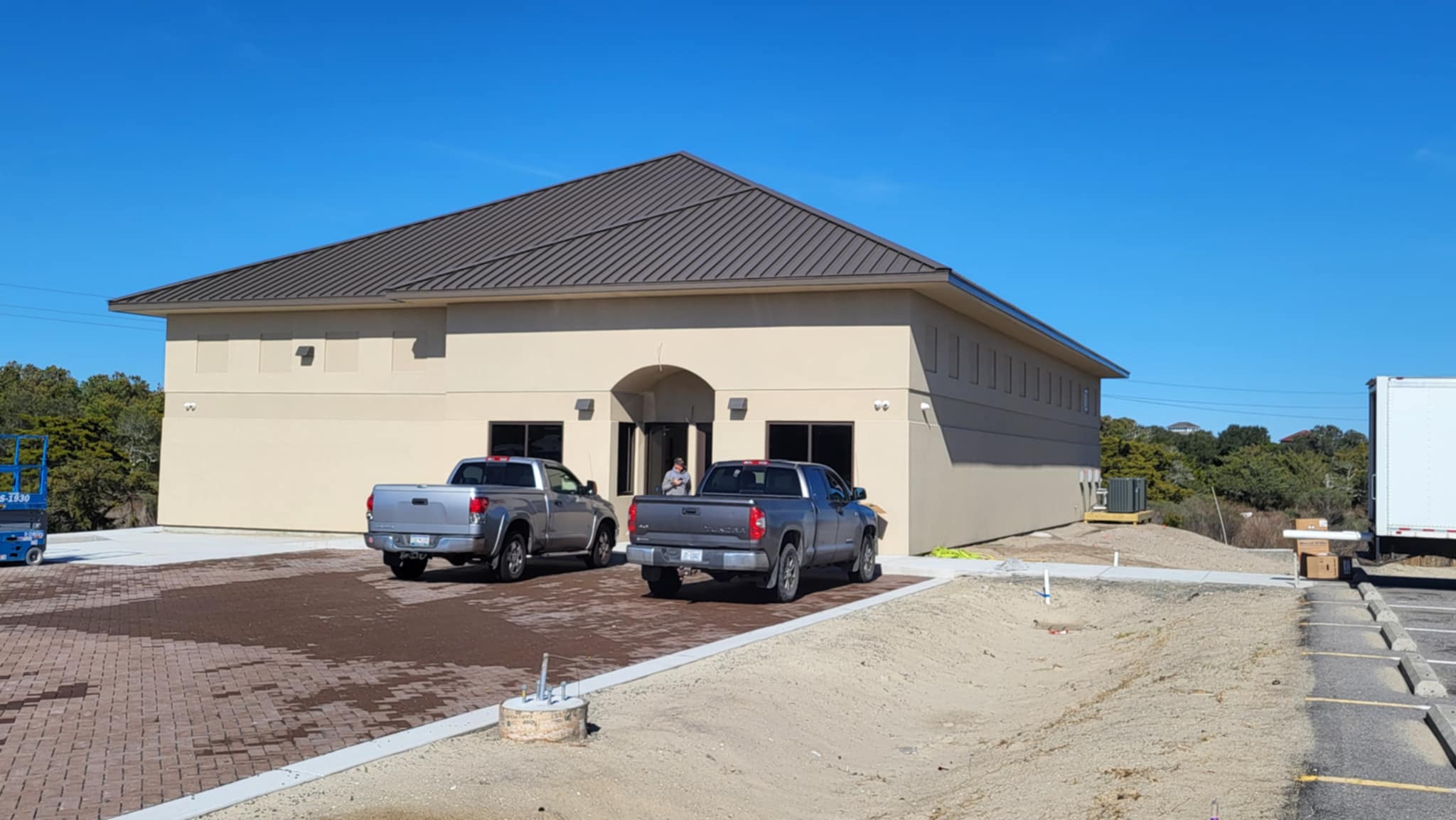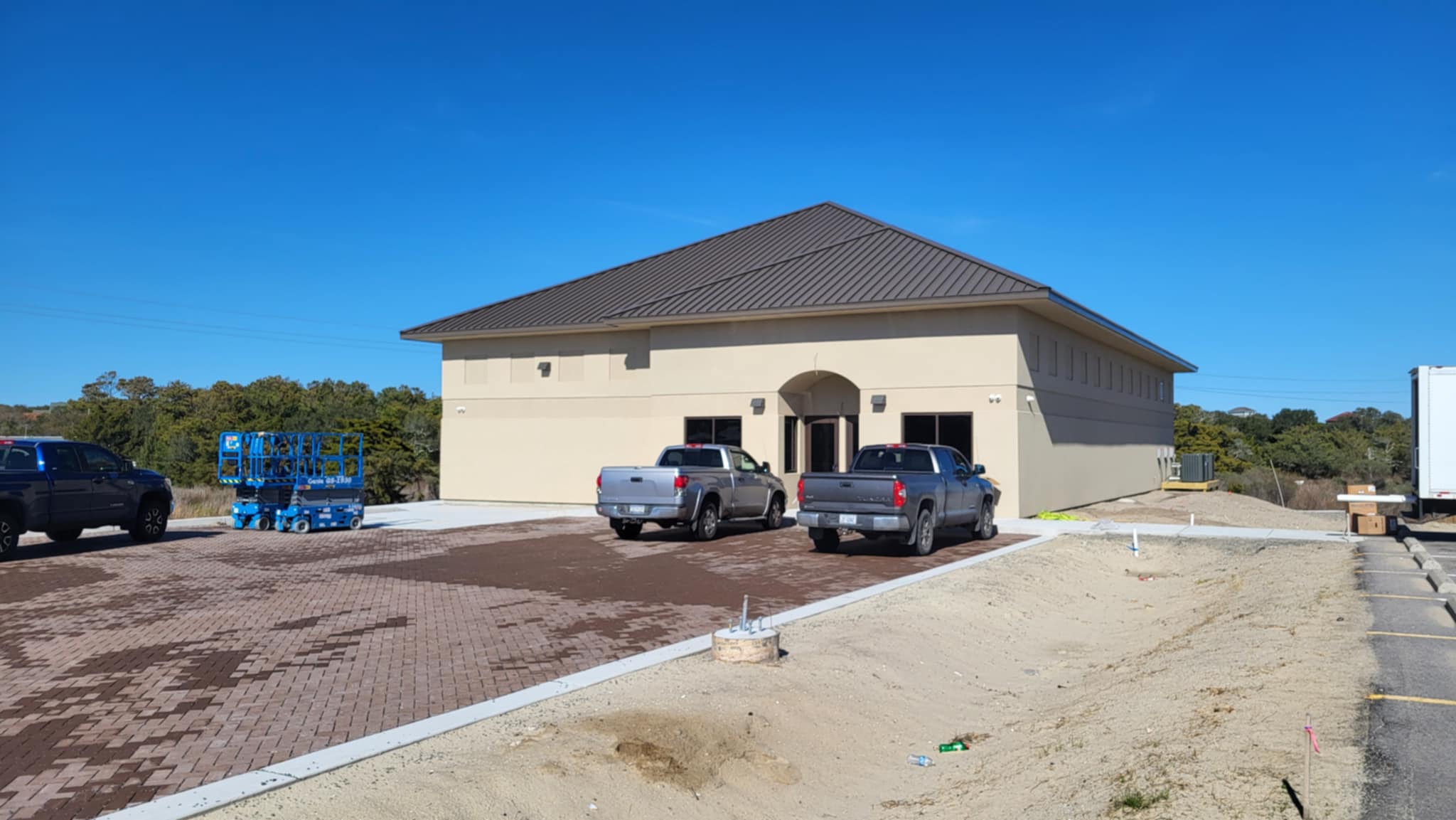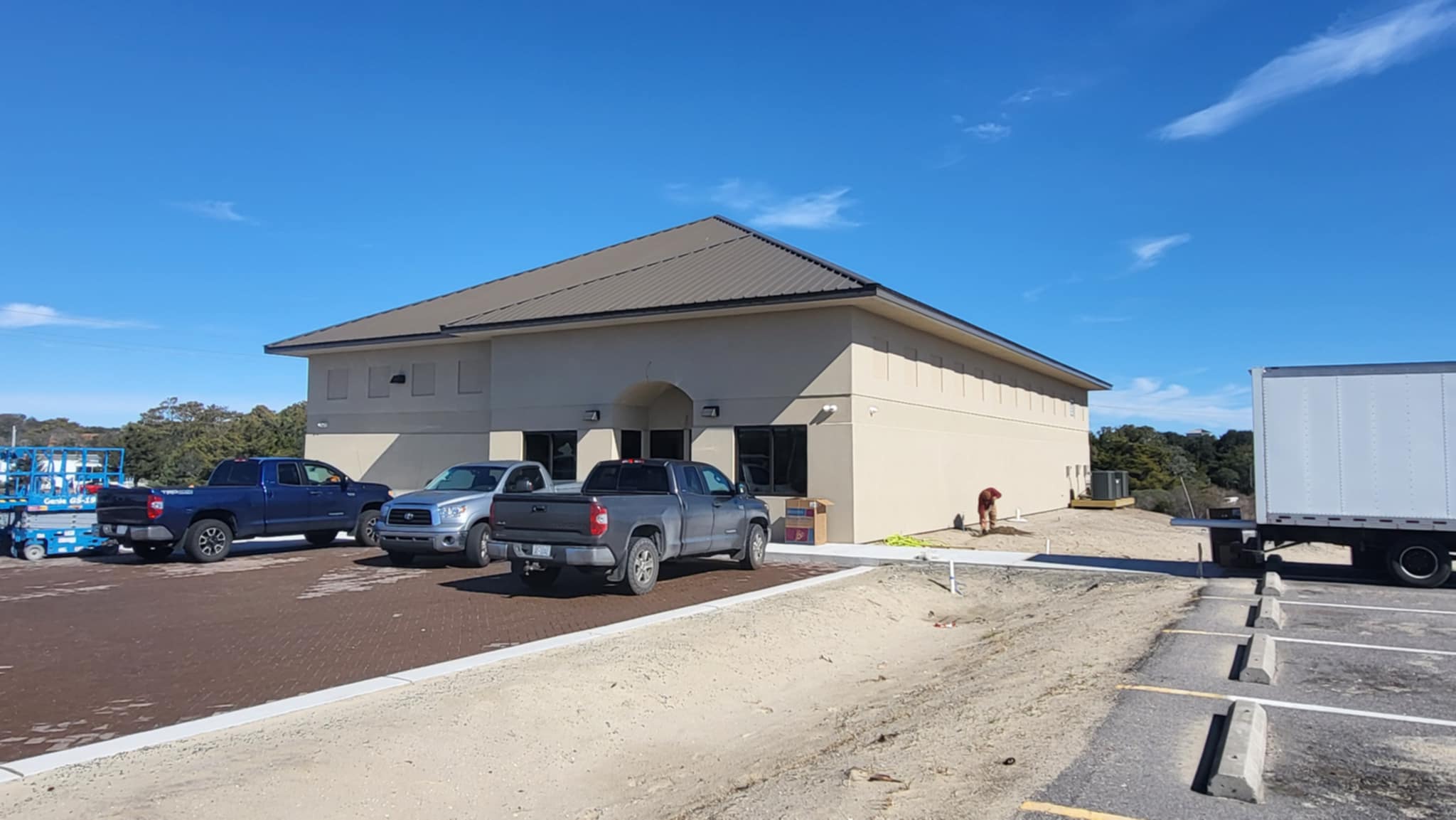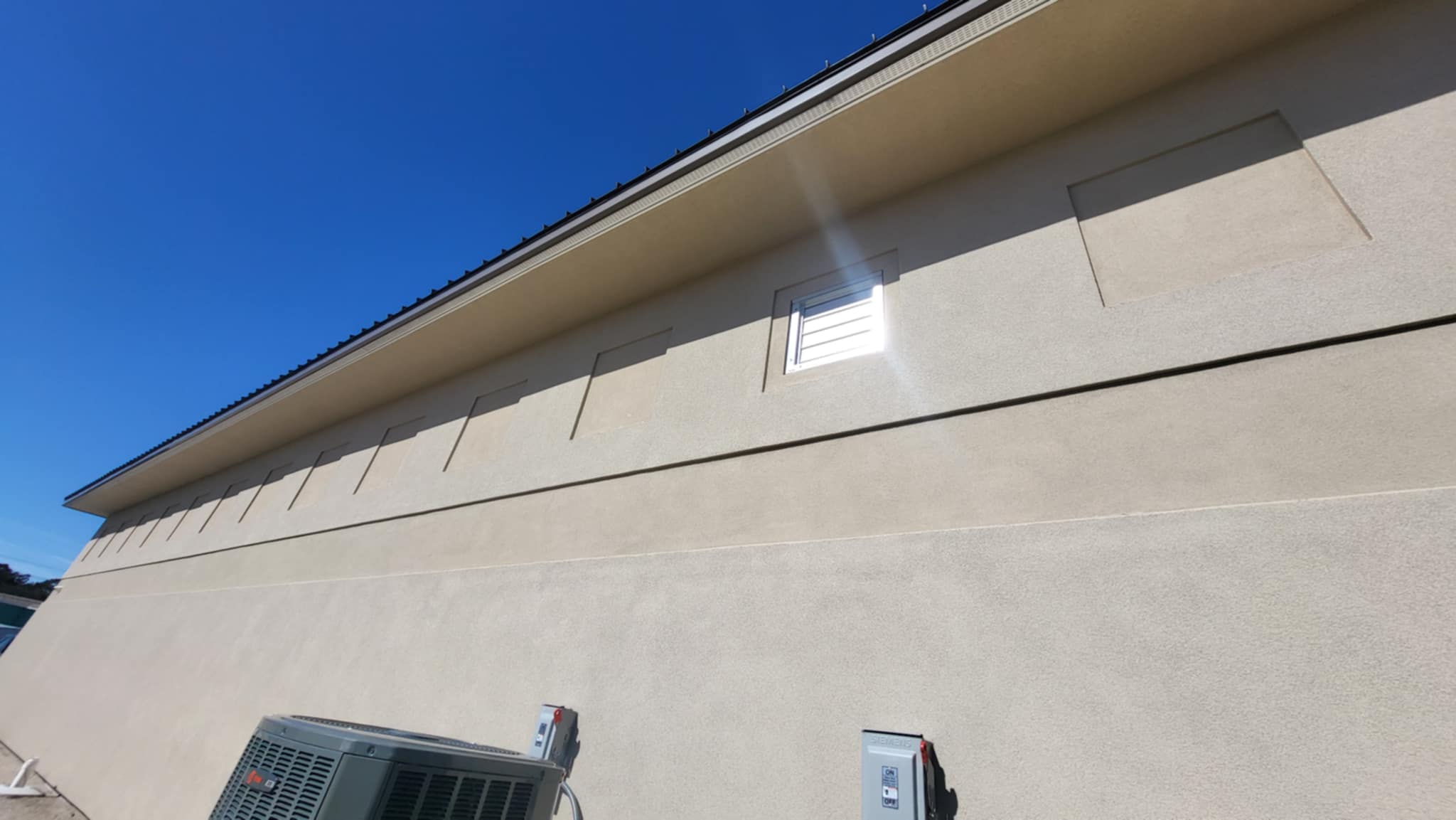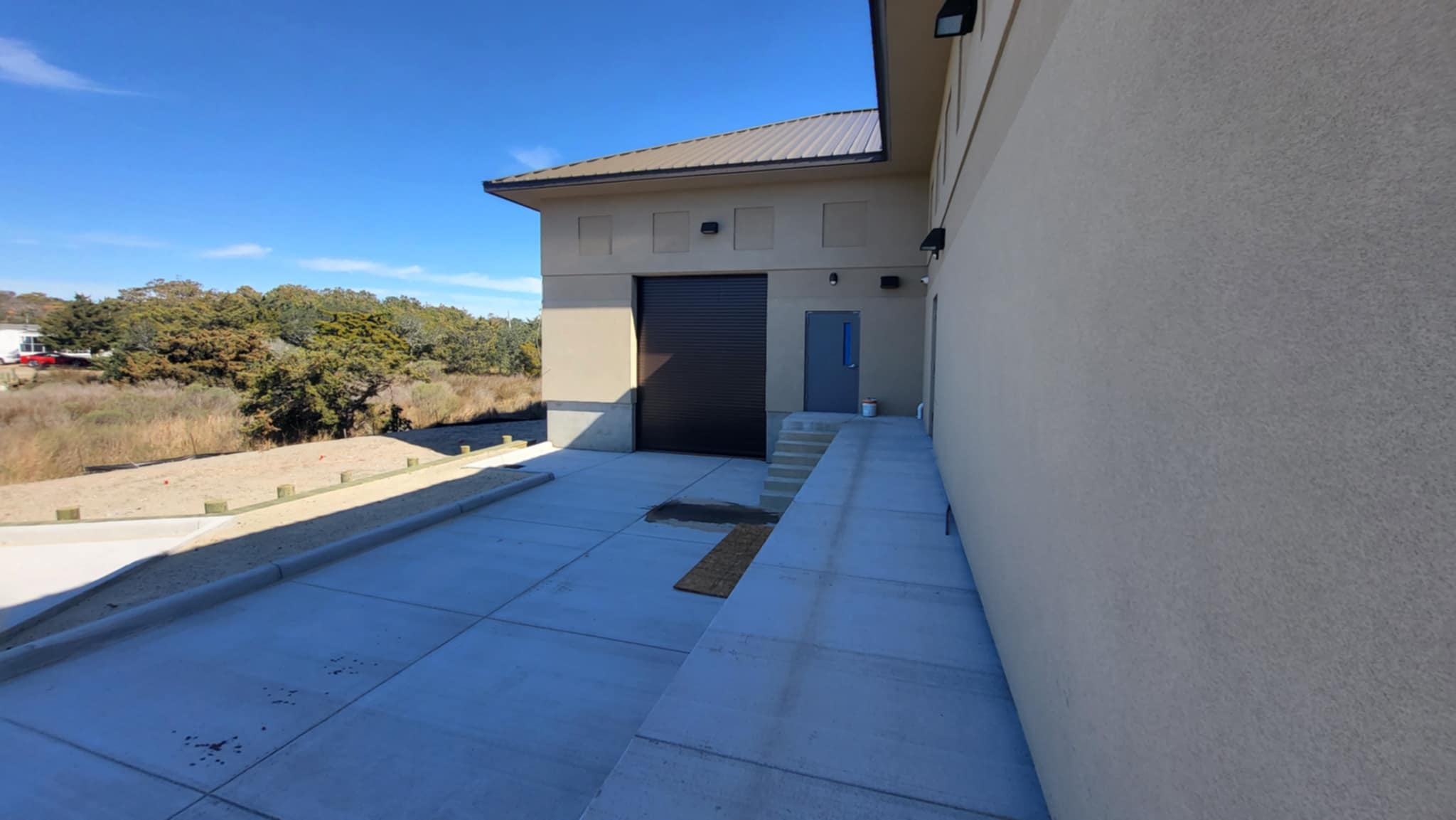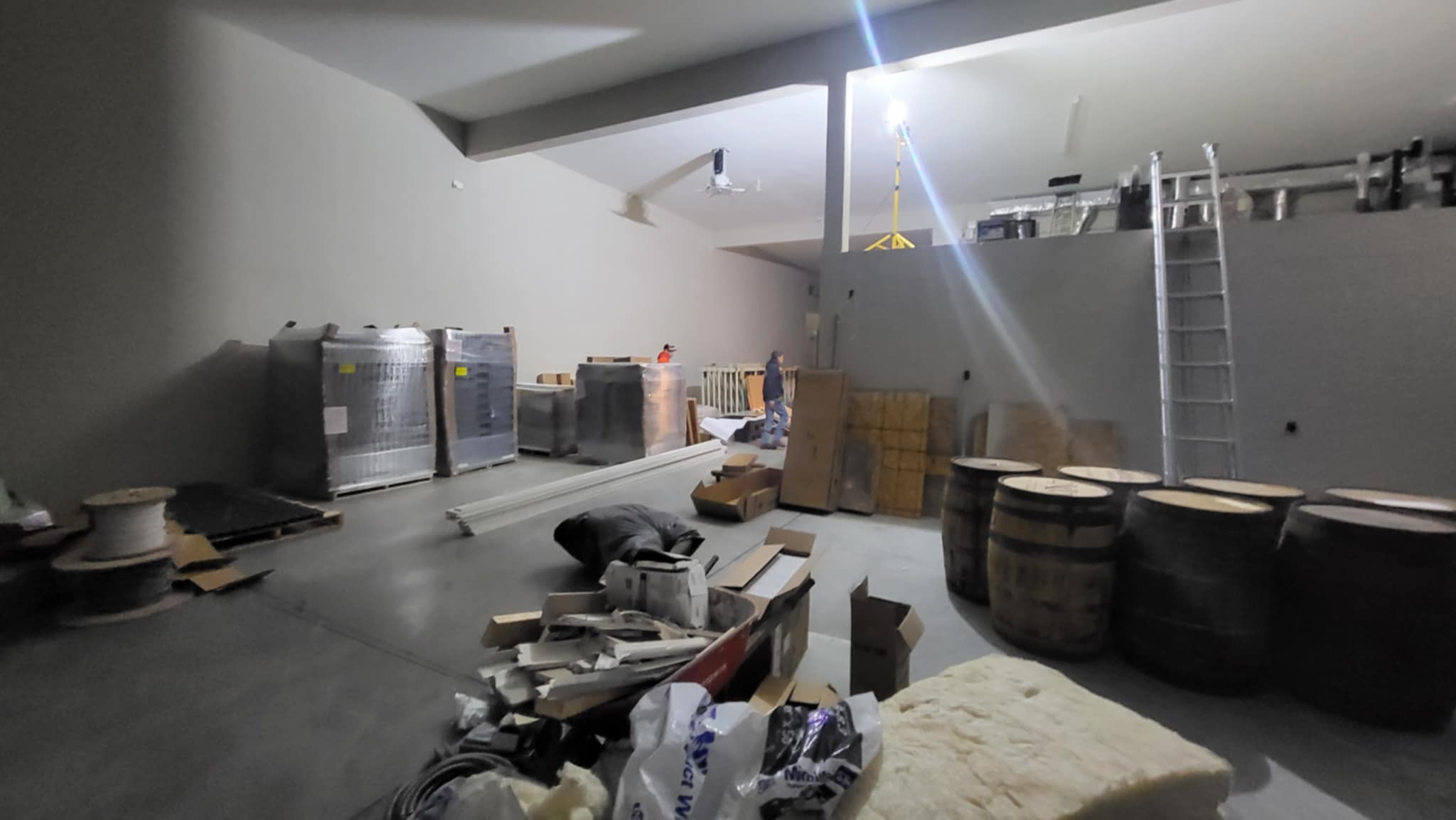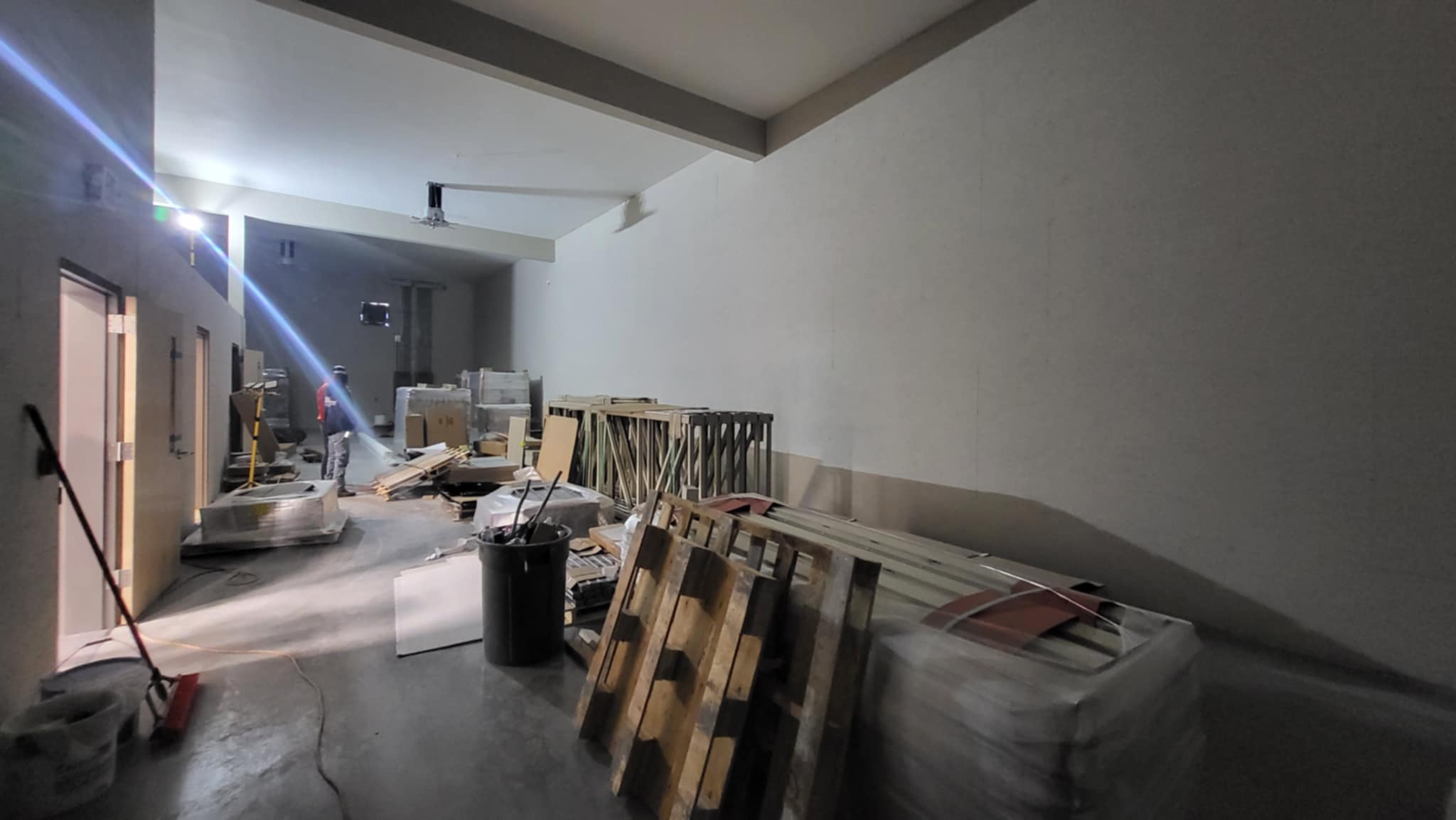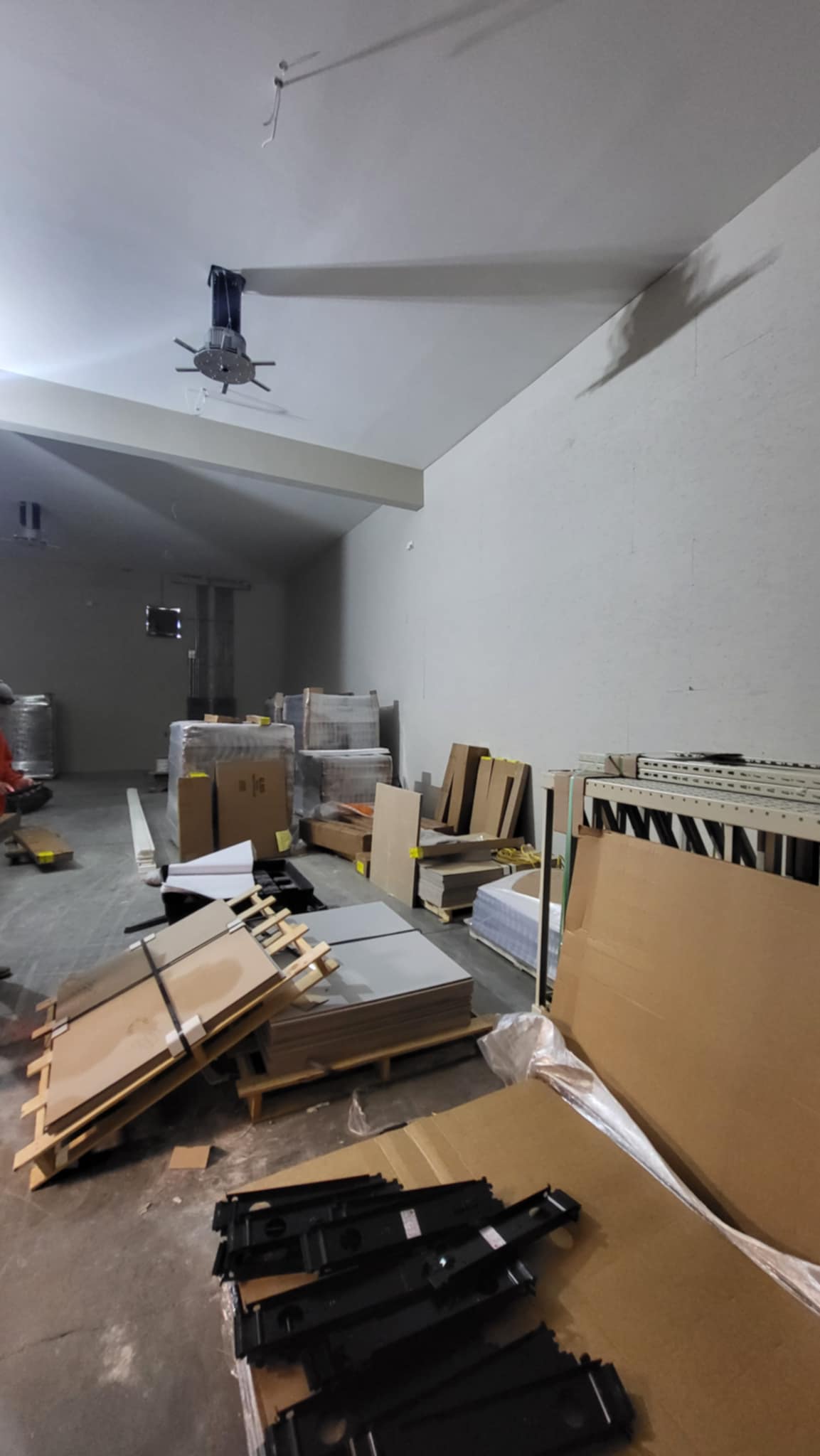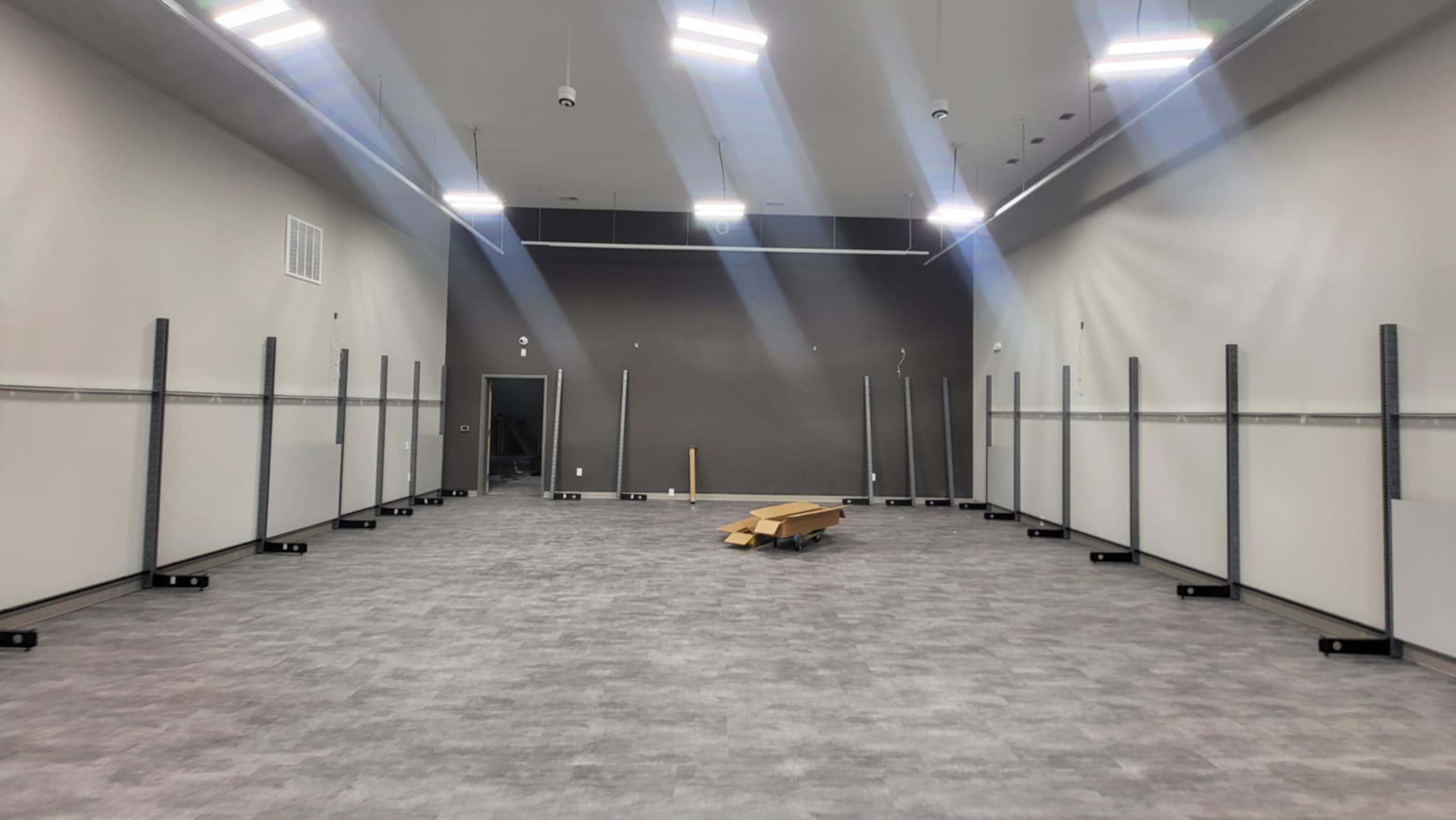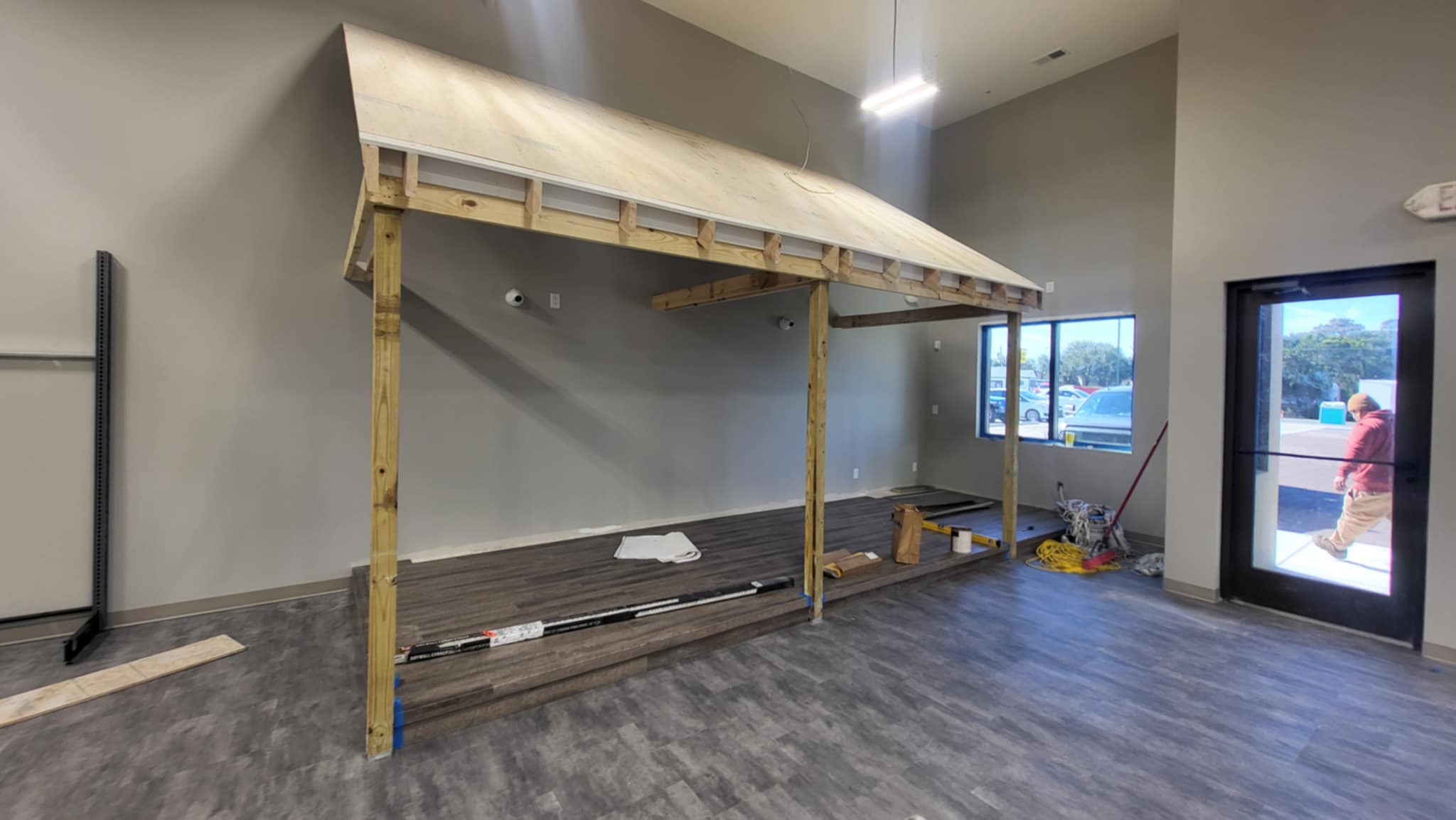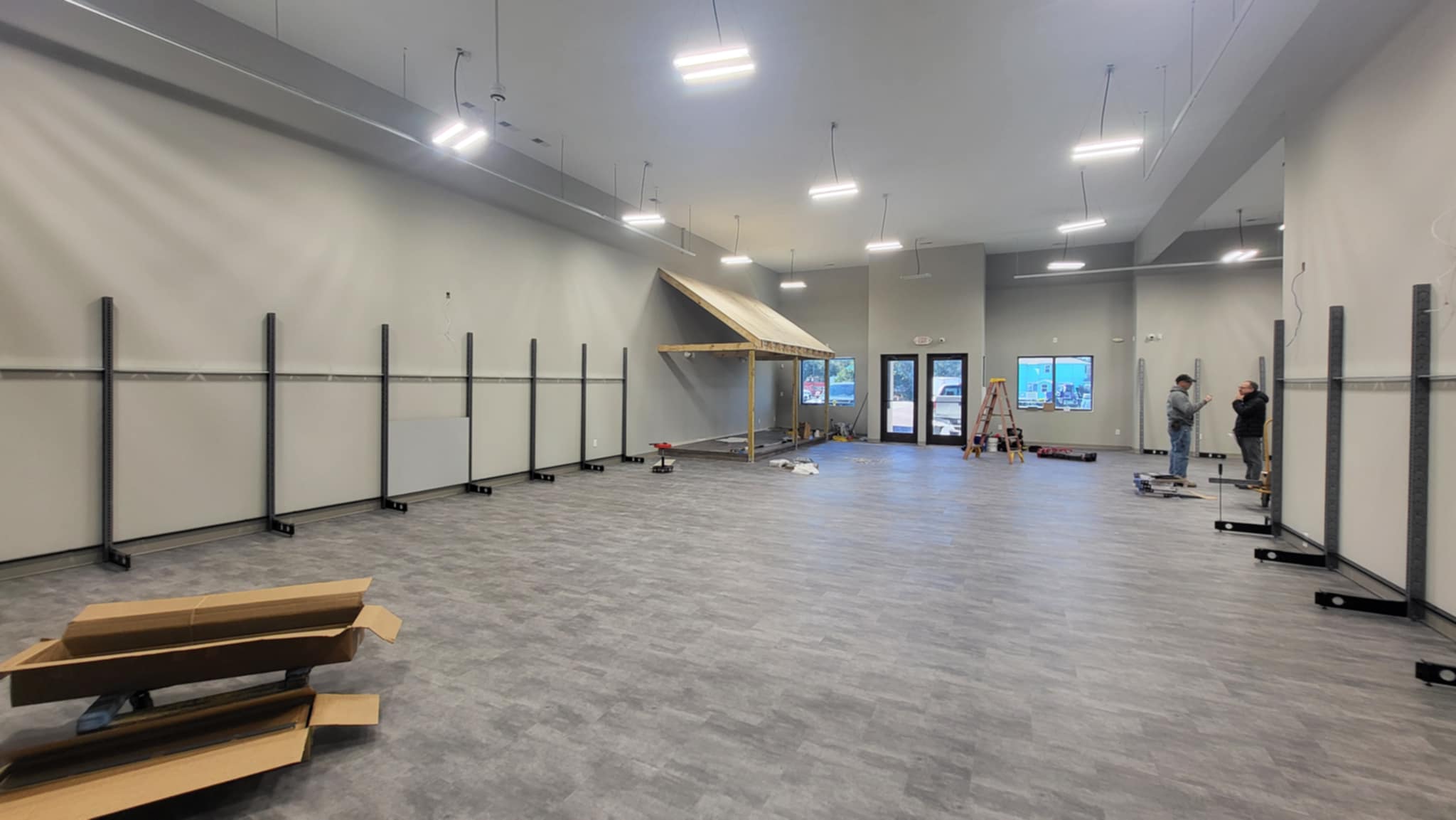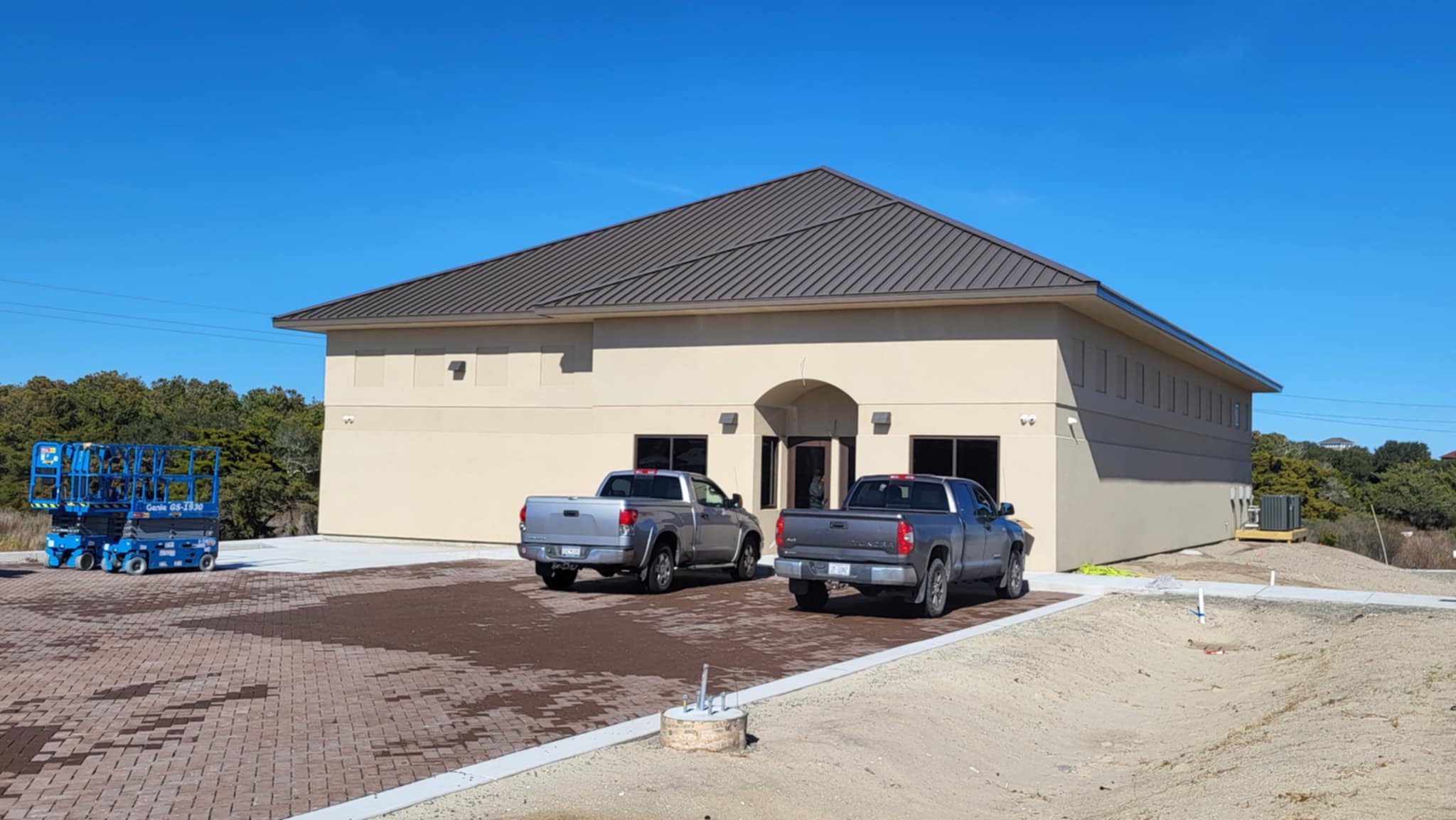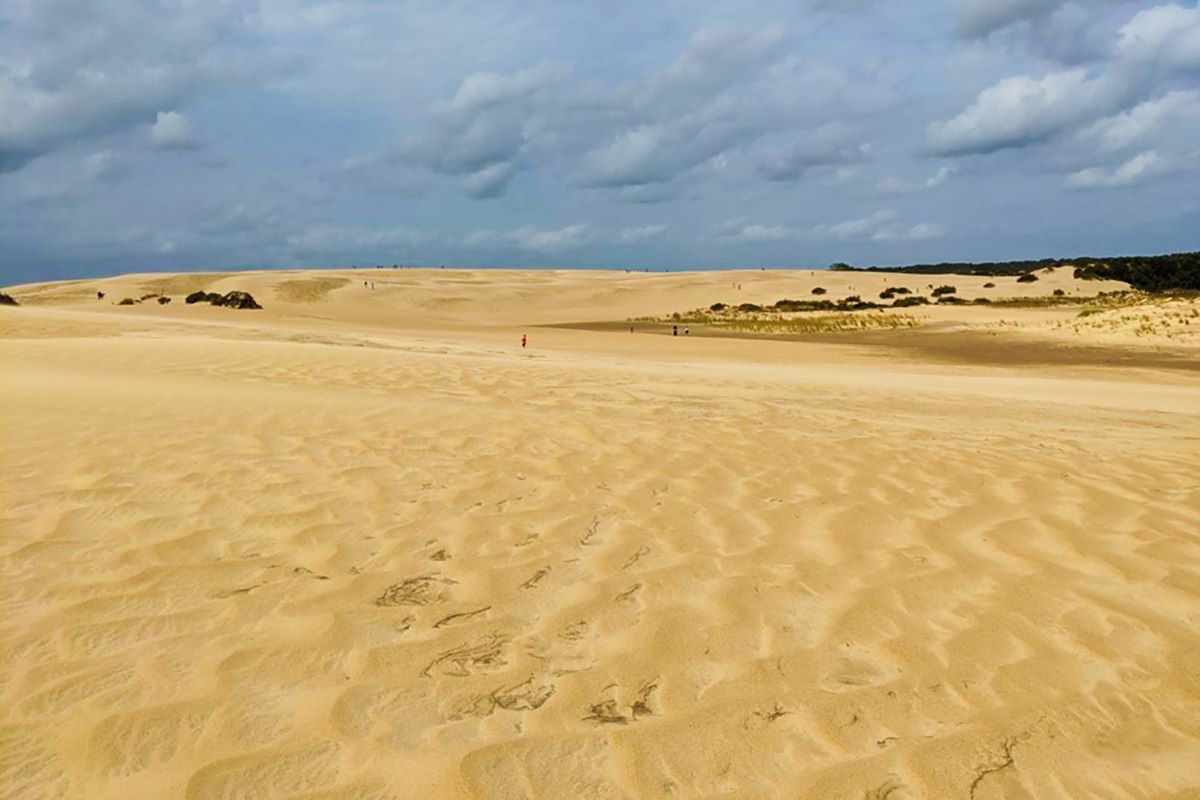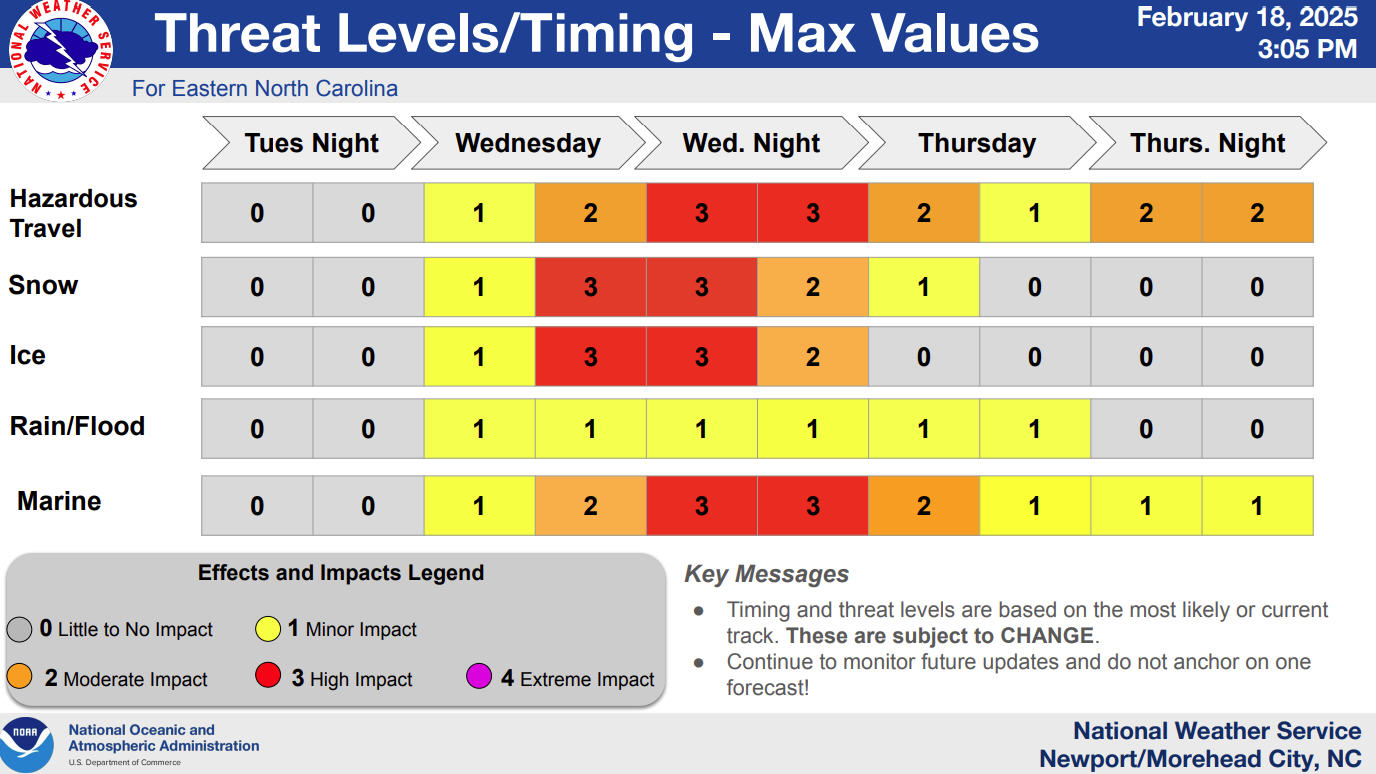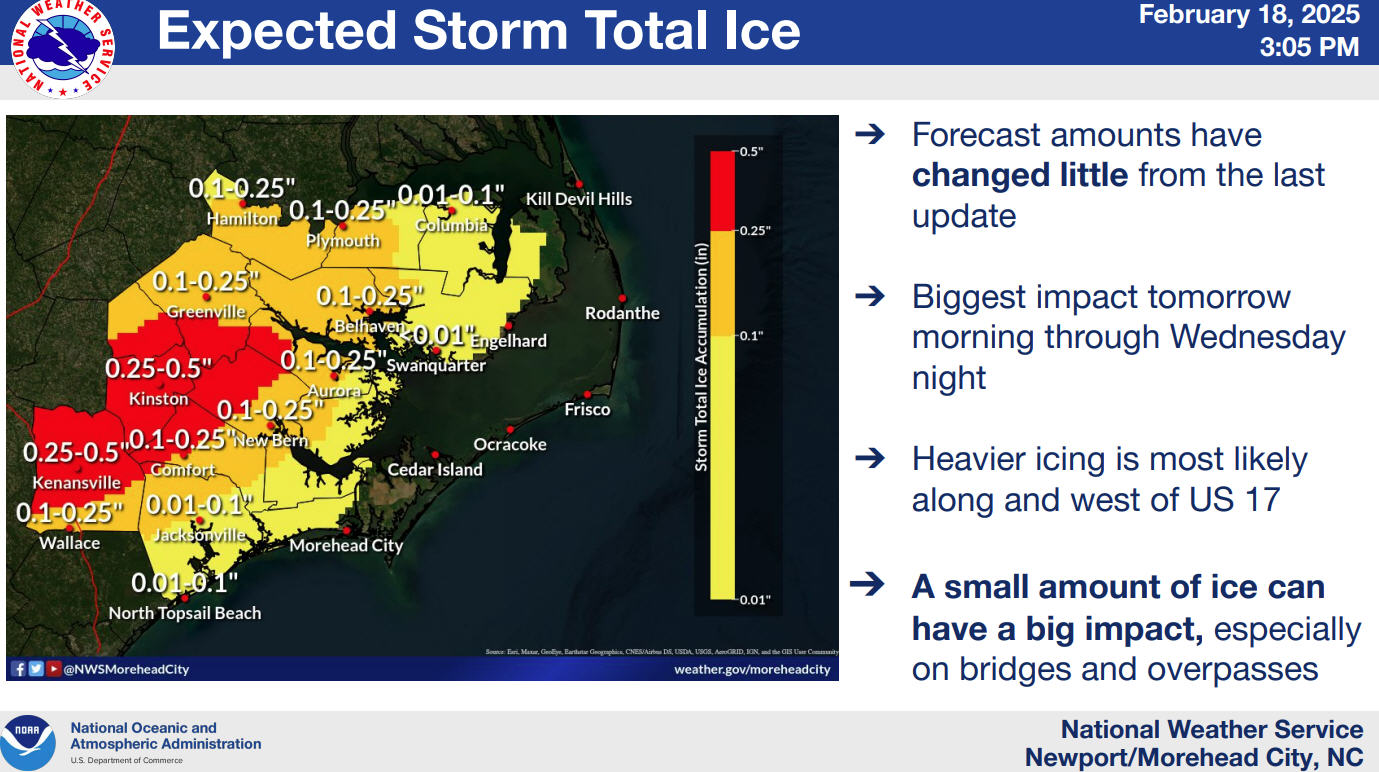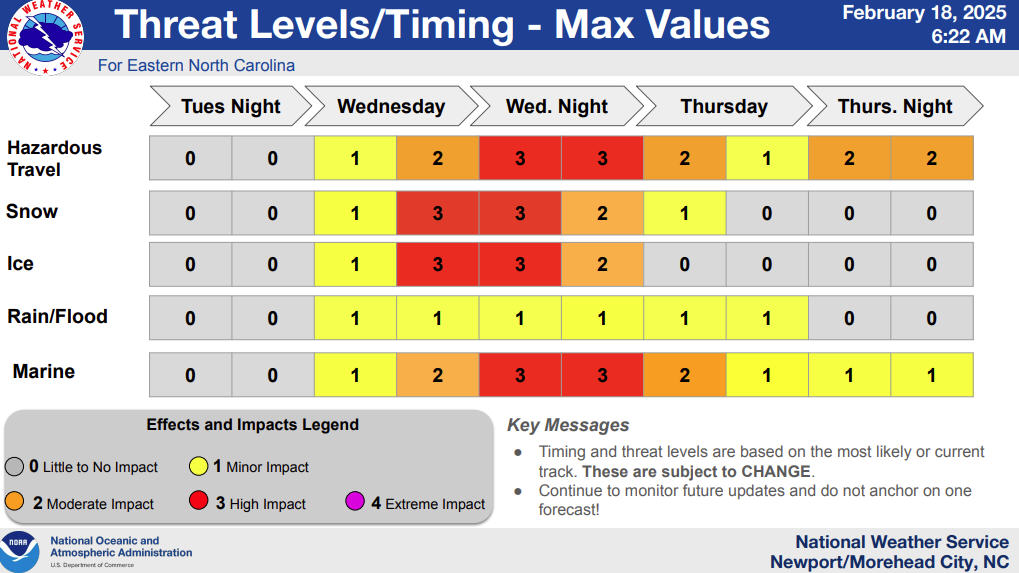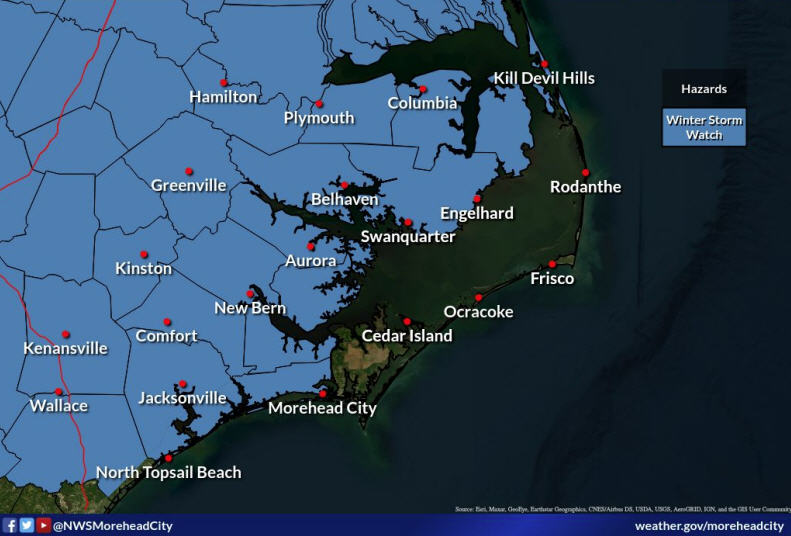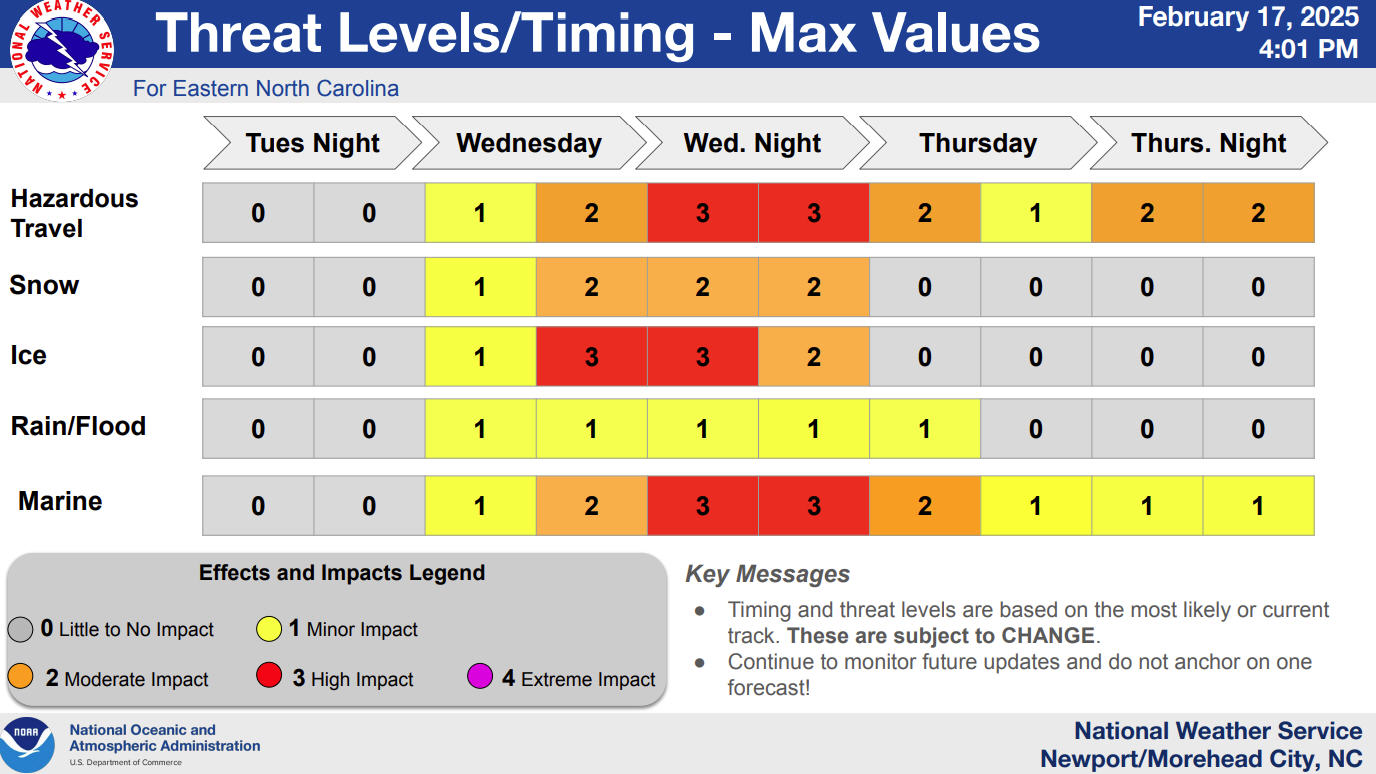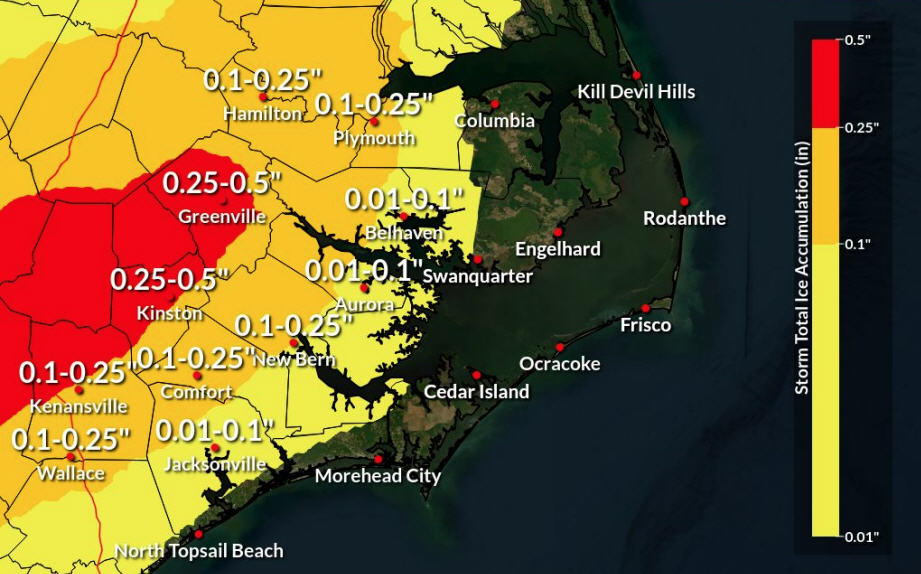UPDATE: Commissioners approve concrete plant in Waves with conditions By IRENE NOLAN
UPDATE: Commissioners approve concrete
plant in Waves with conditions
By IRENE NOLAN
By IRENE NOLAN
By IRENE NOLAN
The Dare County Board of Commissioners last night approved Commercial Ready Mix Products’ request for a conditional use permit to build a concrete plant in Waves on the former Dare Building Supply site.
The plant will provide concrete to the contractor that is building a new bridge at Pea Island Inlet and may provide concrete also for whichever option that The Department of Transportation chooses to bridge the S-curves and north Rodanthe.
The plant has been strongly opposed by many, if not most, residents in the area.
In April, the Dare County Planning Board sent the request for the CUP to the commissioners with a negative recommendation.
However, the board was constrained on what actions it could take because Waves has S-1 zoning, the least restrictive form of zoning in the county. It allows all uses of property — residential, commercial, and industrial.
Commercial Ready Mix needed a conditional use permit only because it proposed adding another building — a construction office — to the site, where the Dare Building Supply structure is still standing. The S-1 zoning allows only one structure on a property.
The Board of Commissioners first took up the CUP application at its May 19 meeting, at which about 20 people spoke against locating the cement plant on the site.
After a discussion which lasted several hours until about midnight, the board postponed further consideration until tonight’s meeting. The discussion before approval tonight lasted another three hours.
First, chairman Warren Judge asked county manager and attorney Bobby Outten to give the board some guidance on both S-1 zoning and when a commissioner should recuse himself from the deliberations on an issue.
The matter of recusal was brought up in public comments before the meeting. Several speakers asked commissioner Allen Burrus of Hatteras Island to recuse himself from both discussions and voting on the concrete plant because at the end of the May 19 meeting he said that he had concerns about his own business if the plant was not built to deliver material to the new bridge.
Outten said if a commissioner did not have a direct financial pecuniary interest, he is not allowed to excuse himself. He did not think the issue of the plant nor Burrus’ comments rose to that level.
“Everything we do has economic and financial implications,” he said. “There is no legal conflict of interest here…There is no need for him to recuse himself.”
Outten then addressed S-1 zoning. The most restrictive zoning in the county, he noted, is residential, followed by commercial and then industrial. He said S-1 addresses height and density and the like, but does not address uses.
He also noted that many opponents of the plant were making the argument that S-1 zoning prohibits uses with “noxious, harmful, or deleterious effects” on other development in the area and that a cement plant rises to that level.
Outten noted to the commissioners that industrial zoning has the very same language in it, but that cement plants are an allowed use in industrially zoned areas. Therefore, one might assume that cement plants do not meet the “noxious, harmful, or deleterious” test.
He also advised commissioners that consideration of the conditional use permit application was a quasi-judicial proceeding and that they could consider only the facts that have been entered into the record during the discussions.
The commissioners questioned representatives for the cement company and the contractor for about an hour.
Judge asked the first questions aimed at getting the applicants to discuss whether or not Commercial Ready Mix could deliver concrete at the proper temperature from its plant in Nags Head.
This has been a contentious issue in the ongoing debate about locating the plant in Waves, which the company says it needs to deliver the concrete at the required 75 degrees, especially during the hot summer months.
However, while answering Judge’s questions, a representative for Ready Mix said that it would take four to six weeks to construct the plant on site if the company got the go-ahead. Meanwhile, the contractor expects Ready Mix to start pouring concrete in about three weeks.
The company said that if the plant isn’t ready when it has to start providing concrete, that the concrete will be trucked from the Nags Head plant.
The next questioner was Bob Woodard, who chastised the contractor and the supplier.
“I hate the fact that I’ve had to do so much research,” he said, “when we have so many experts in front of us…I’m not convinced it can’t be done from Nags Head….You were not forthright with us last time…You can deliver concrete for the project from Nags Head.”
While it became obvious that the Nags Head plant could supply the concrete, that was not a basis on which the board could legally deny the permit.
Other commissioners asked about retardants that could be added to the concrete to keep it cooler during transport, nighttime pours, visual and sound buffers, fence heights, the Coastal Area Management Act, stormwater runoff, and air quality.
The plant does not require a CAMA permit, Outten said. Coastal Ready Mix also has an air quality permit from the state.
When the questioning ended, Judge called for a short recess. When the commissioners returned, Woodard made a motion that the request for a CUP be denied. His motion was seconded by Virginia Tillett.
The motion to deny was defeated by a 4-3 vote of the board. Voting in favor of the motion were Woodard, Tillett, and Jack Shea. Voting against were Judge, Burrus, Max Dutton, and Wally Overman.
The commissioners then reviewed the 16 conditions that had been attached to the application. Changes were made in about eight of them.
The most significant change is in the hours of operation for the plant. They will be limited to Monday through Friday from 8 a.m. until 5 p.m.
Other changes to the conditions included:
Outdoor storage of materials. Must be under a three-sided building with a roof that is not higher than 30 feet. The material must be kept wet at all times.
Not just driveways and parking areas must be kept wet at all times, so must the entire property.
A 10-foot sound attenuation fence must be erected along the east, south, and north sides of the work area and the commissioners extended the length of the south and north fences.
No travel trailer will be allowed on the site for the project manager, who will have to make his own arrangements with a local business for a place to stay during the operation.
The plant will be allowed to remain until all bridges on Hatteras Island are completed, but in no event will it be allowed longer than seven years from the date of approval of the permit.
After discussion of the conditions, Commissioner Burrus made a motion to approve the application for the CUP with conditions as changed. It was seconded by Max Dutton.
The motion passed unanimously.
Today, Burrus said his phone was ringing off the hook with folks from the tri-villages who are unhappy with him. However, he still feels the board had no legally defensible reason to deny the permit.
Trip Forman, an owner and founder of REAL Watersports, which is located across Highway 12 from the plant, was a leader of the opposition to its location on the old Dare Building site.
Today, he noted that the opponents, though disappointed, were only one vote short of getting things to go their way.
“We were disappointed that our commissioner from Hatteras Island voted against us,” he added.
“We presented a valid case for the CUP to be denied,” he said. “The applicant presented no case, and their experts couldn’t answer questions.”
However, Forman said that he is happy with the restrictions, especially the hours and days of operation, the sound attenuation wall, and the storage of material under a three-sided building with a roof.




